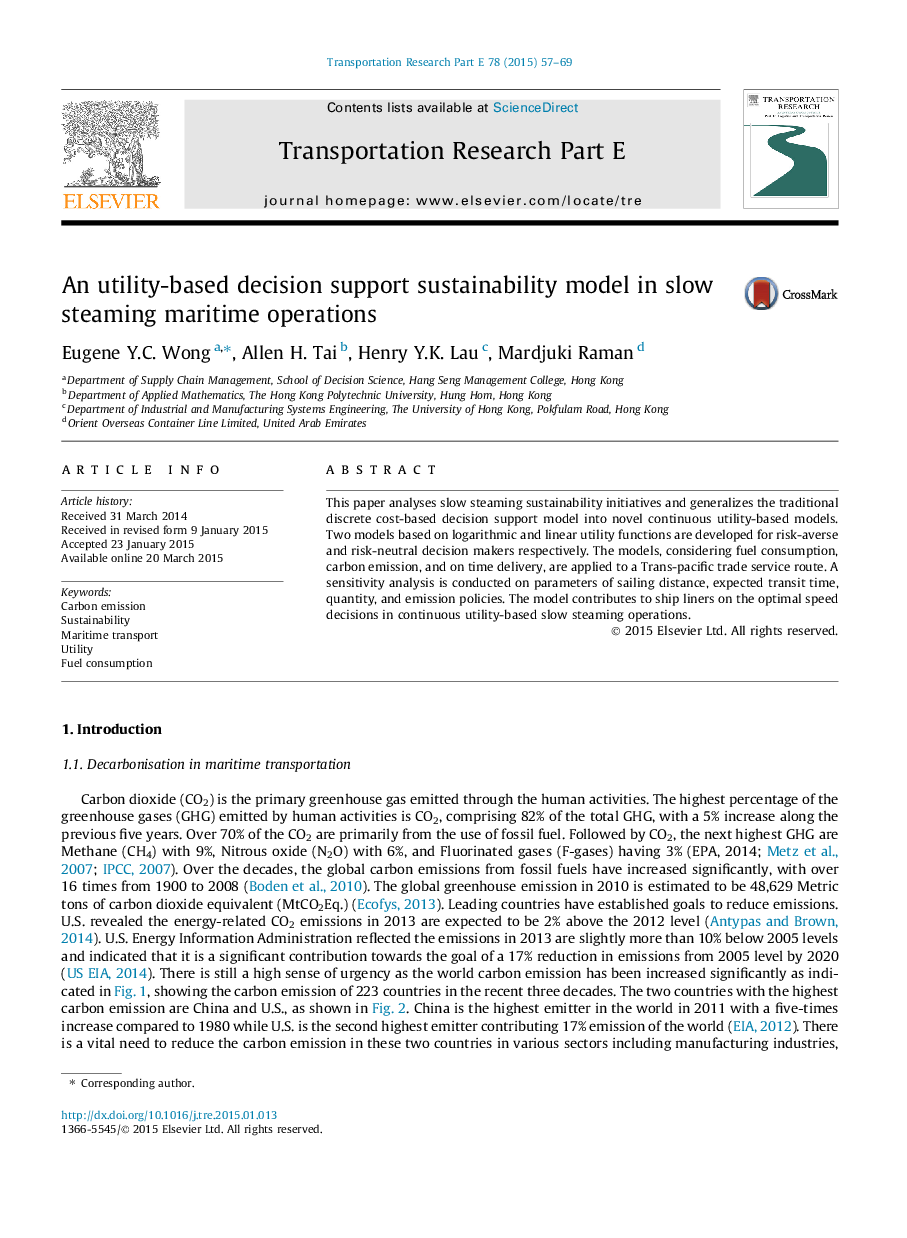| Article ID | Journal | Published Year | Pages | File Type |
|---|---|---|---|---|
| 1023119 | Transportation Research Part E: Logistics and Transportation Review | 2015 | 13 Pages |
•Continuous utility-based decision support models for slow steaming are developed.•Logarithmic and linear utility functions support risk-averse and -neutral decisions.•Utility-functions comprise fuel consumption, carbon emission and on time delivery.•The model applies to a Trans-Pacific service route in determining an optimal speed.•Sensitivity analysis on sailing distance, transit time, quantity and emission policy.
This paper analyses slow steaming sustainability initiatives and generalizes the traditional discrete cost-based decision support model into novel continuous utility-based models. Two models based on logarithmic and linear utility functions are developed for risk-averse and risk-neutral decision makers respectively. The models, considering fuel consumption, carbon emission, and on time delivery, are applied to a Trans-pacific trade service route. A sensitivity analysis is conducted on parameters of sailing distance, expected transit time, quantity, and emission policies. The model contributes to ship liners on the optimal speed decisions in continuous utility-based slow steaming operations.
